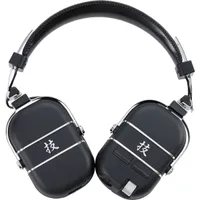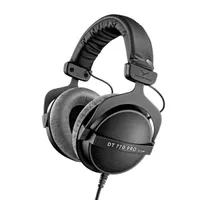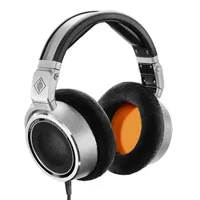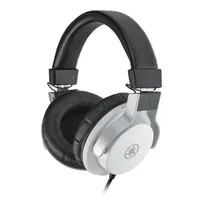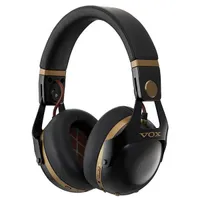Best guitar amp headphones 2025: 6 options for when the neighbors need a break
From studio stalwarts, to fully fledged amps you wear on your head, these are the best headphones for guitar amps
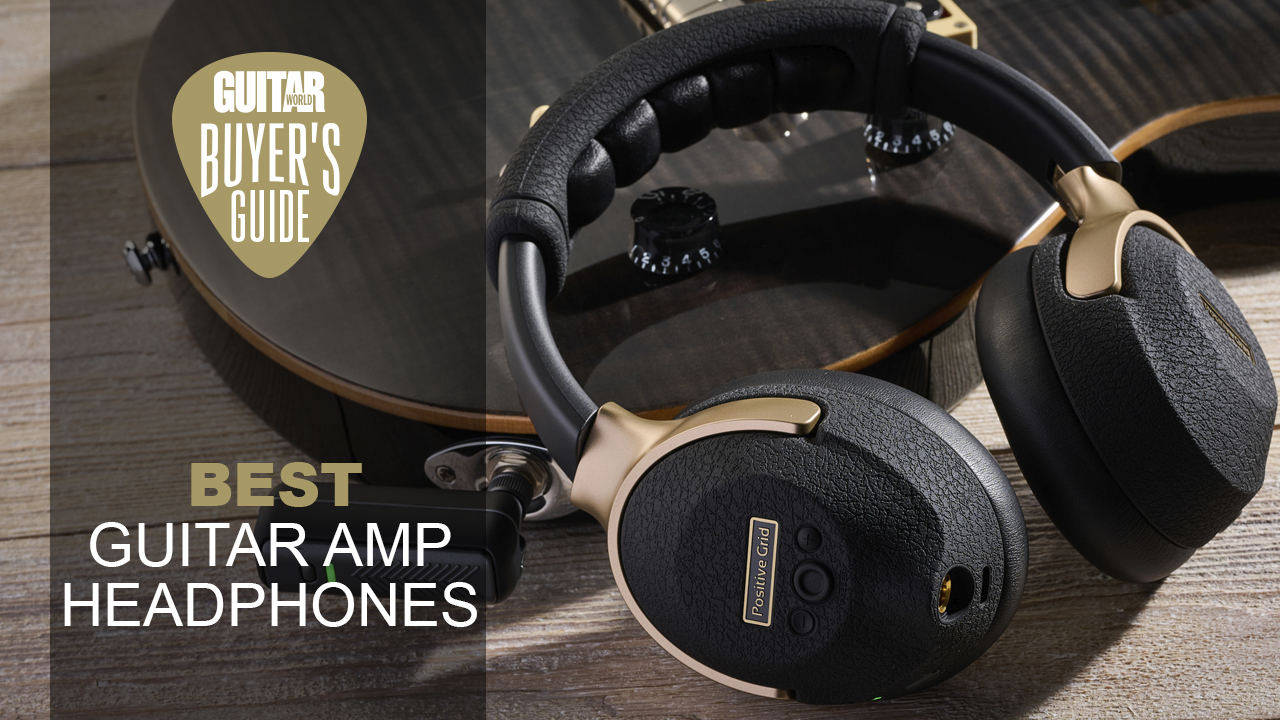
All the latest guitar news, interviews, lessons, reviews, deals and more, direct to your inbox!
You are now subscribed
Your newsletter sign-up was successful
If you're able to crank your tube amp at home, then consider yourself lucky. For most of us, this just isn't a possibility without disturbing partners, children, dogs, cats, or anyone else in the nearby vicinity. That's why we need a pair of the best guitar amp headphones handy, so we can practice silently whenever inspiration calls.
A high-quality pair of headphones for practicing with your guitar is essential to get a good sound, so most of the picks here are the sort of headphones you'd find in a studio. I've selected headphones with a low impedance too, as high impedance headphones need a lot more juice to sound their best, which you often can't get without an external headphone amplifier.
If you want the best overall option, then go for the Audio-Technica ATH-M50x, which has a great balance of value, sound, comfort, and are closed back to keep external distractions at a minimum. If you need something a little cheaper, check out the AKG K240s which are superb value for money below $100.
If you're new to headphones, you'll want to check out my how to choose section which takes you through everything you need to know before buying. I've also pulled together all the most popular questions I get asked about headphones in our FAQs, and decoded some headphone-specific lingo for you in my glossary of key terms.
My top picks
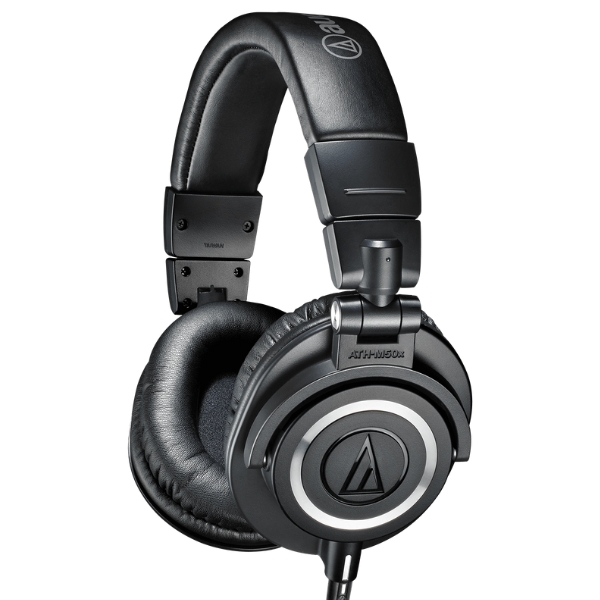
For us, the Audio-Technica ATH-M50x is the logical choice for guitar players. They have an excellent frequency range, flat frequency response, are comfortable, competitively priced, and closed back to reduce any sound leakage.
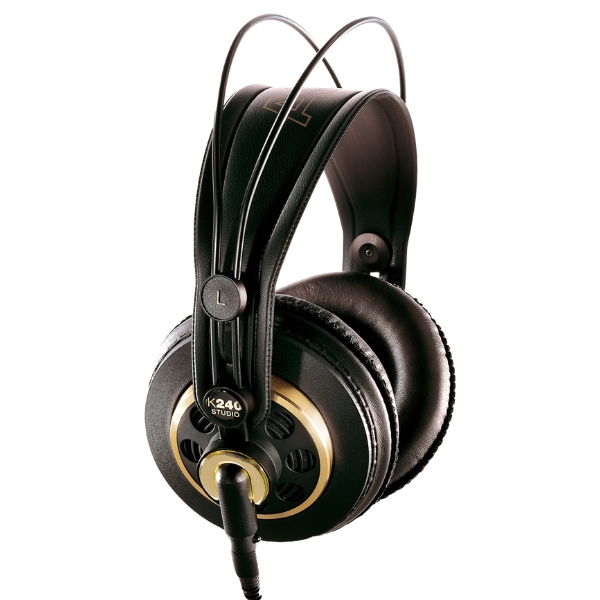
You don't need to spend loads to get great sound from your guitar amp through headphones. The AKG K240 Studio's cheap and cheerful price combines excellent performance, rugged build quality, and a comfortable adjusting headband.
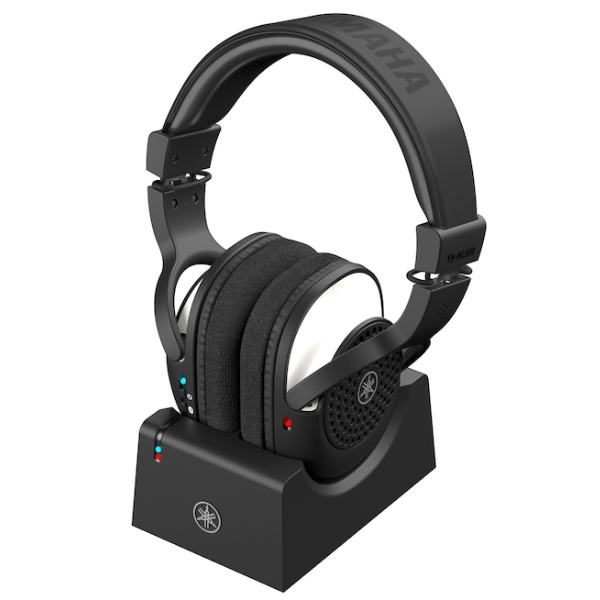
The only true wireless headphones for guitar, Yamaha's YH-WL500s deliver a superb latency performance of just 4ms, giving you an instant response when you pluck the strings. With a great soundstage, you've got the ultimate cable-free cans.
Best overall
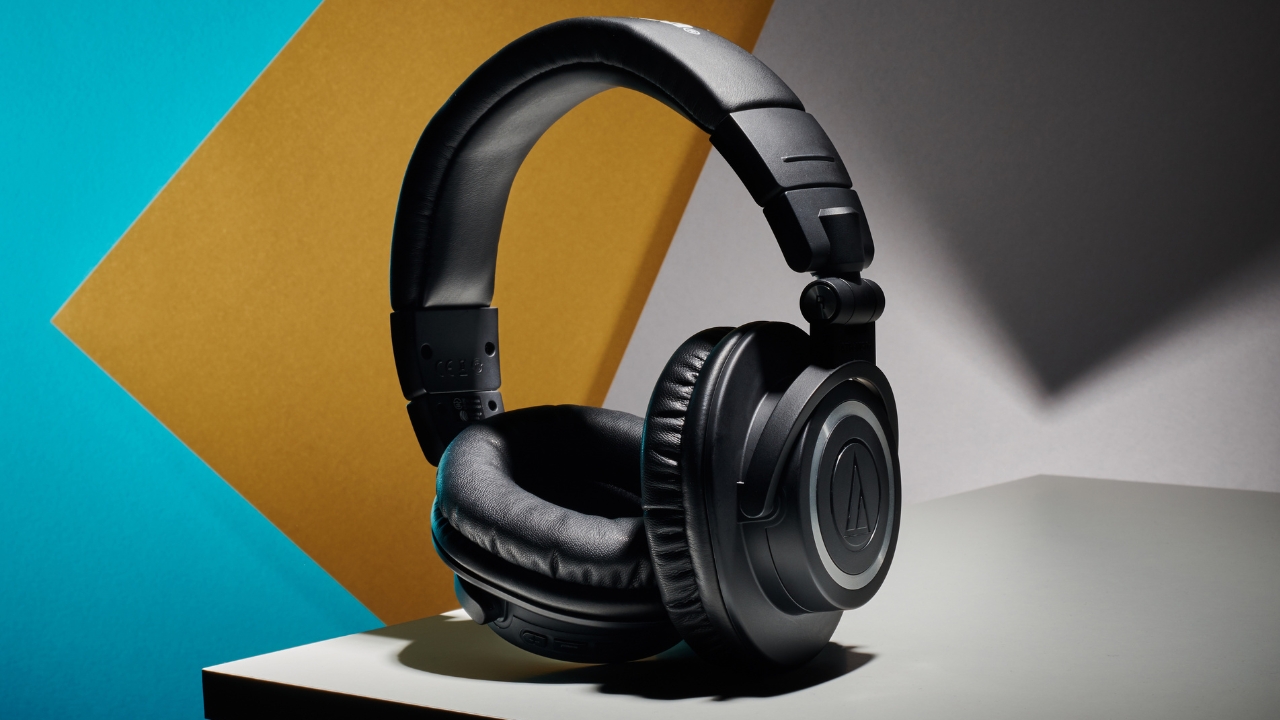
1. Audio-Technica ATH-M50x
Our expert review:
Specifications
Reasons to buy
Reasons to avoid
✅ Buy if you want a great all-rounder: These comfortable, closed-back headphones are fantastic value for money and can double as mixing headphones, or just for listening to your favorite tunes.
❌ Avoid if you don't like a tight fit: These headphones are very snug, so avoid them if you don't like tight-fitting headphones.
This closed-back set from Audio-Technica sits amongst the most popular studio-quality headphones on the market and is well suited for guitar players, supporting frequencies from 15Hz to 28kHz. They’re highly effective at delivering amp tones that are uncolored and real – with very little change in EQ and response, and a quicker response compared to mainstream wireless options.
We have had the original, non-wireless version of these headphones for years, they’ve been thoroughly thrown around on countless studio sessions and have never let us down. They're comfortable too, staying firm on your head although we have heard some people say they're a little too tight.
The Bluetooth version we reviewed has an optional cable which you'll need for your guitar or any studio work, but they could be a good option if you want to listen to your mixes or favorite tracks on the go. Unless you really want to listen to music wirelessly though, we'd always go for the wired version of a set of headphones for maximum fidelity.

"To test the M50's prowess in the context of guitar amps, we used our Positive Grid Spark amp, as this features a broad enough range of amp models so we can test different combinations, and then also we tested in a DAW environment using IK Multimedia’s Amplitube application. The first thing we picked up on was how rich the sound was; there’s a definite bump in the low end, so you might need to factor that into your amp’s EQ setting, although it wasn’t unpleasant."
Read more: Audio-Technica ATH-M50x review
Best budget
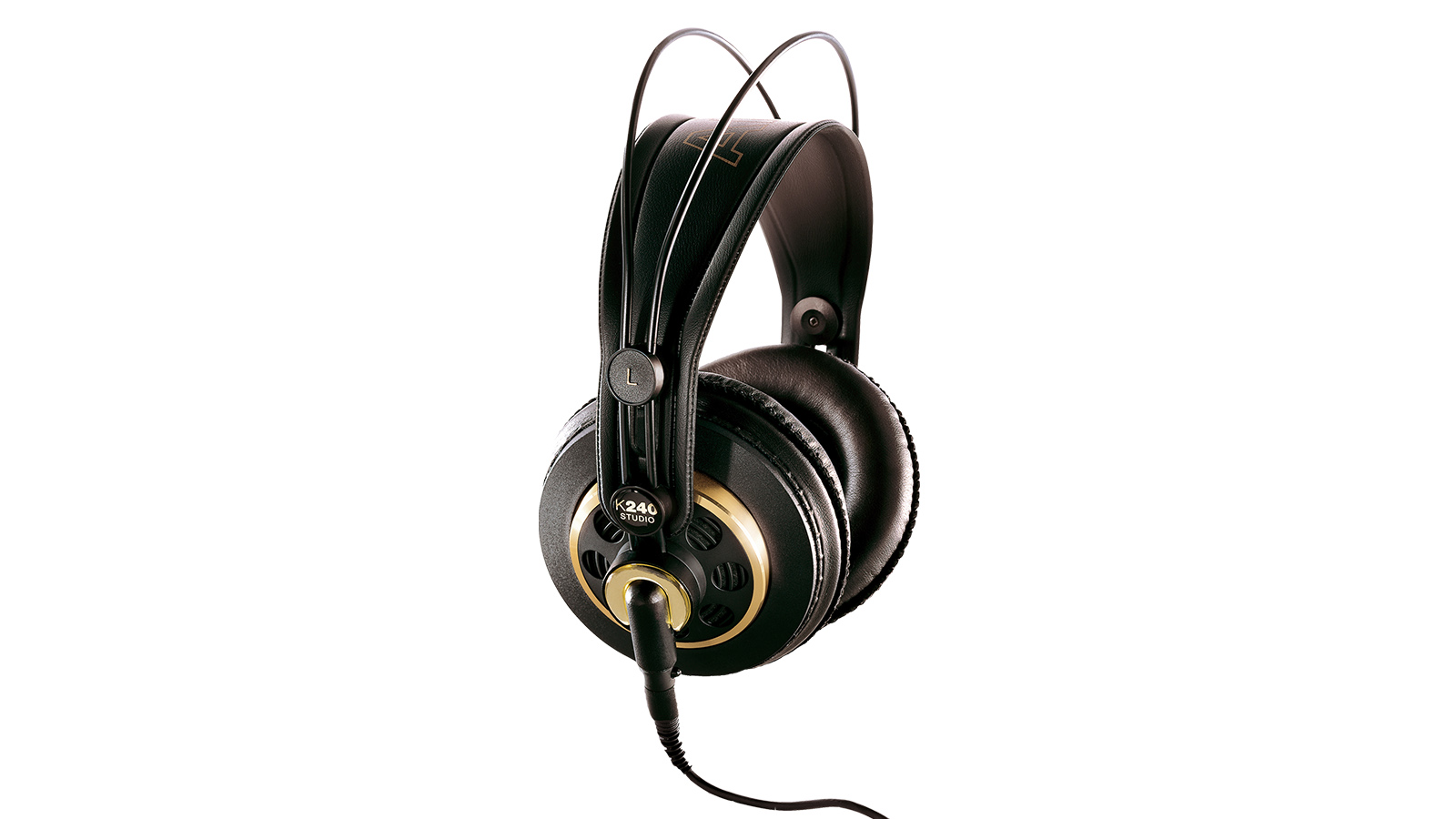
2. AKG K240
Our expert review:
Specifications
Reasons to buy
Reasons to avoid
✅ Buy if you're on a budget: These headphones are dirt cheap but still provide excellent quality sound that's great for guitar players.
❌ Avoid if you need low-end: Other models on this list feature a greater depth of low-end so look elsewhere if you're all about the bass.
If you're looking for a cheap pair of cans that you don't have to feel bad about chucking into a backpack or tossing around your practice room, the AKG K240s should serve you well. Simple yet effective, their price point typically sits below the $/£100 mark, making them excellent value.
Not all of the best guitar amp headphones are made the same when it comes to comfort – some can feel too tight and build pressure on the ears over time, therefore distracting the musician from what matters most. This is where the AKG K240 Studio shines, with a self-adjusting headband system that easily sits and sets easily on just about any head size.
With a frequency response of 15Hz to 25kHz, these headphones will cover your guitar sound in full and for little expense compared to other models made for studio use. They offer little in terms of extras, designed primarily with mixing in mind, but still double as a great pair of headphones for listening to your favorite albums.
Best wireless
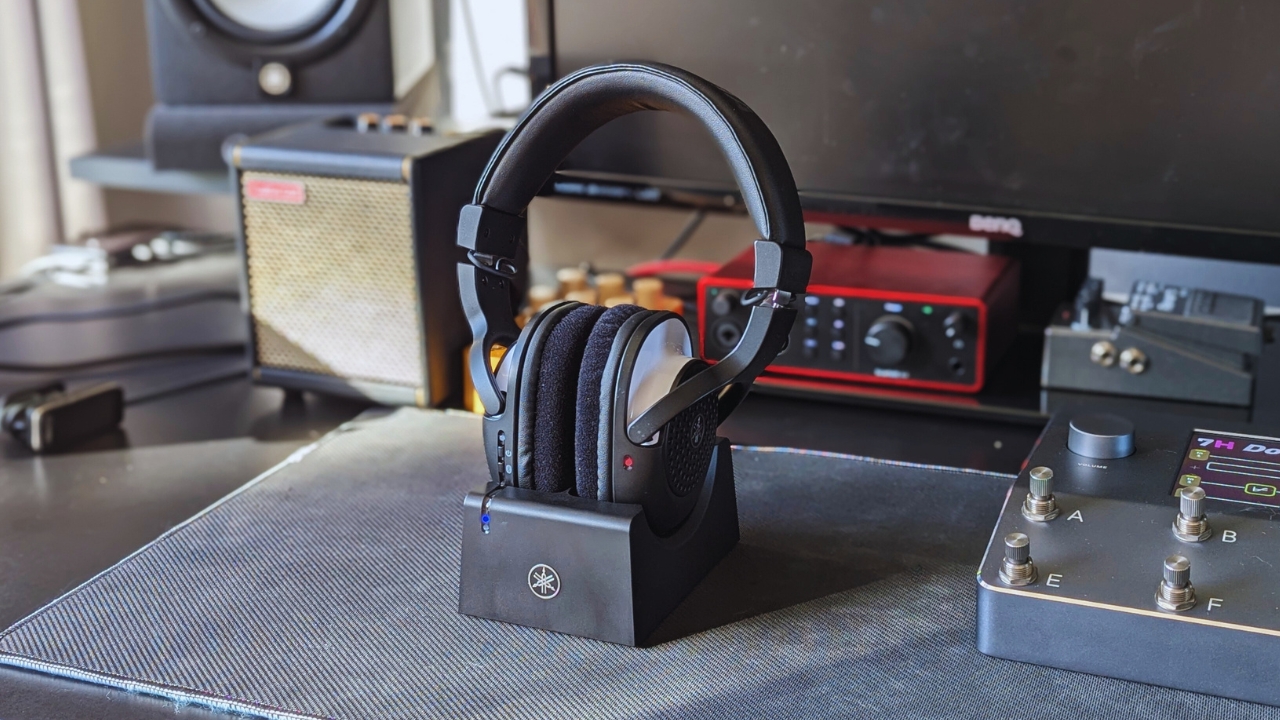
Specifications
Reasons to buy
Reasons to avoid
✅ Buy if you want wireless guitar playing: With its included docking station, the YH-WL500s are the only truly wireless headphones you can use with your guitar amp.
❌ Avoid if you're on a budget: That wireless tech doesn't come cheap though, and you could get a lot of quality wired cans for similar money.
Using wireless headphones over Bluetooth is not really possible when playing electric guitar. This is due to the latency Bluetooth induces, which as of Bluetooth 5 is somewhere in the region of 20-40ms. Enter the Yamaha YH-WL500s, which reduce that number down to a mere 4ms.
When we reviewed the YH-WL500s we were incredibly impressed with the wireless performance. You plug the dock end into your guitar amp then the wireless headphones use proprietary technology to reduce the latency to an unnoticeable level. It works brilliantly well, and is the first time we've encountered a truly wireless headphone for musicians.
The sound stage is excellent, so you'll really hear those super-wide stereo reverbs and delays through these. The cups are really comfortable too, however we did find that over longer sessions the headband dug into the top of our head a little bit. It's a small price to pay to be able to wonder around the house playing your guitar though.

"They’re nicely balanced overall, and there’s not loads of low-end hype which I always appreciate in a headphone. When playing some reference tracks through them I found the quality to be really good, with an impressive soundstage and a great amount of detail in the sound."
Read more: Yamaha YH-WL500 review
Best all-in-one
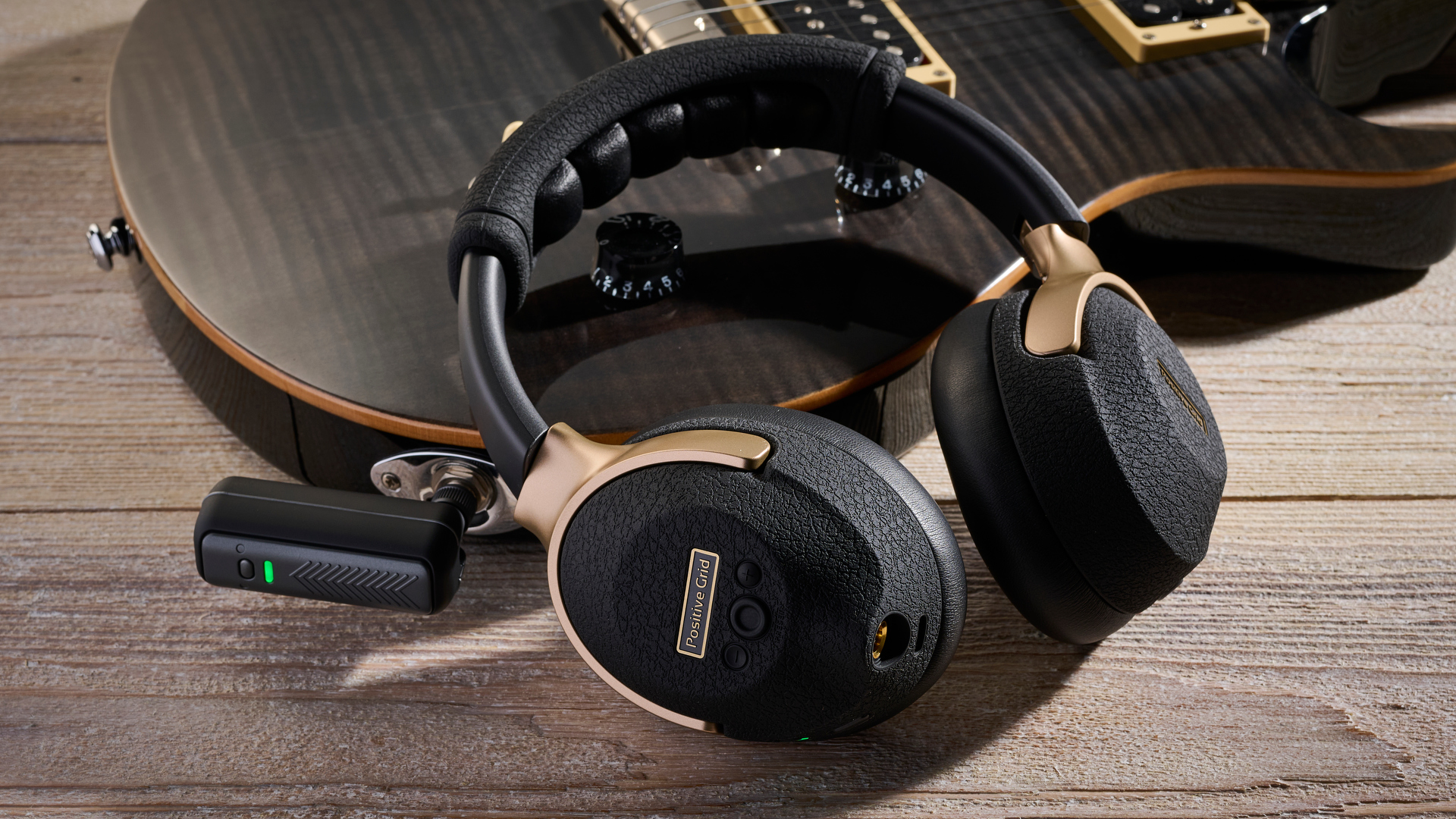
Specifications
Reasons to buy
Reasons to avoid
✅ Buy if you want a complete wireless rig: Spark Neo doesn't require an external amplifier and being totally wireless, it's an excellent option to free yourself from the shackles of any cables.
❌ Avoid if you're on a budget: This level of technology isn't cheap, so avoid it if you're on a small budget.
With a huge range of top-quality amp and effects models, the Positive Grid Spark Neo gives you a full guitar rig contained within a pair of wireless headphones, making it probably the most convenient practice tool I've ever used.
The headphones themselves are built very ruggedly, with an almost Tolex like feel to the rubbery outer casing. It means you won't feel bad about chucking them in a backpack to take on the road with you, but I do think that at this price, it would be nice if PG had included at least a soft case with them.
In terms of sounds, it's very much the full Spark experience here, with 43 amps and 33 effects models meaning you'll have pretty much any tone you could wish for. Like the Spark amps you can load four hardware presets without your smartphone, and cycle through them using the button on the side of the ear cups.
There's no SmartJam or video recording function here though, as those features require a sound playing in order to work. You can still access all the other features on the Spark app though, including the ever-useful user-generated tone library, and the AI tone generator.
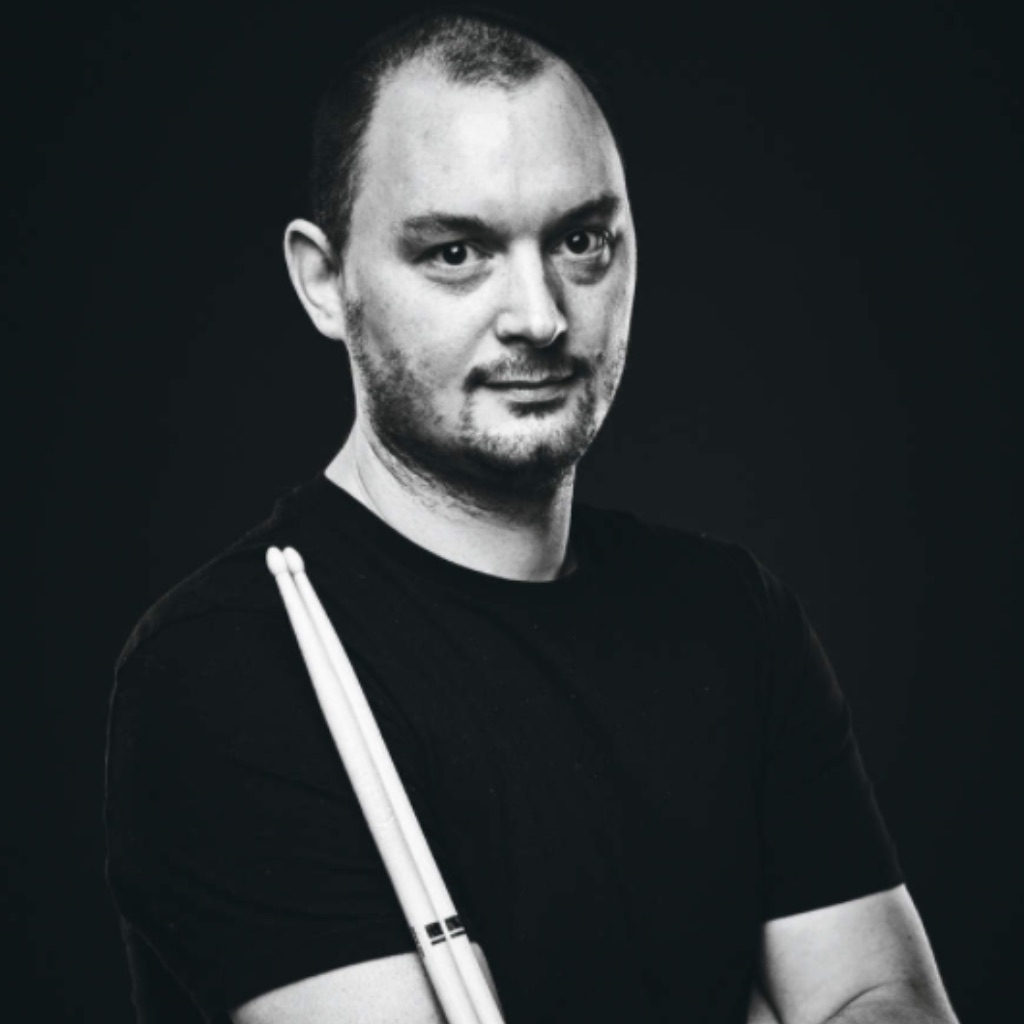
"There’s a risk of the wireless convenience coming across like it’s solving a First World problem, and in a way, it is. But once you’ve experienced it, it makes complete sense. If the ability to grab your guitar and quickly start playing without cables sounds good (and trust me, it is), then you’re going to love the Spark Neo."
Read more: Positive Grid Spark Neo review
Best portable
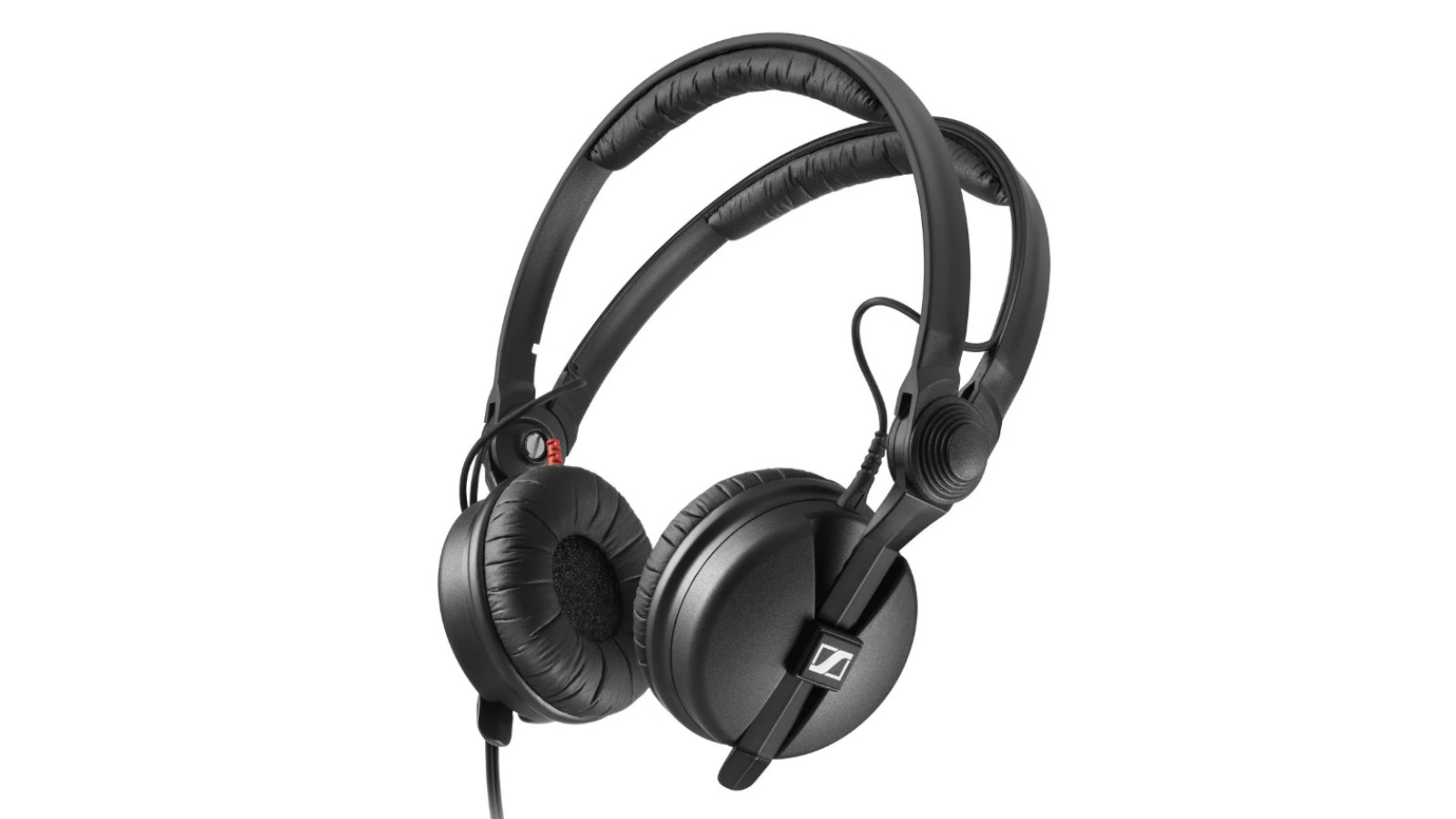
5. Sennheiser HD25
Our expert review:
Specifications
Reasons to buy
Reasons to avoid
✅ Buy if you want portable guitar amp headphones: With their small, lightweight sizing and foldability these headphones are perfect for the traveling guitarist.
❌ Avoid if you don't like on-ears: These headphones are placed on your ears rather than around them, which some guitarists can find uncomfortable.
Seen in DJ booths across the world, the Sennheiser HD25 headphones are industry standard for a reason – and it’s not just DJs who love them, guitarists do too. With a generous frequency range all the way down to 16Hz and up to 22kHz, and super sensitive aluminum voice coils, you can be confident that these headphones deliver an honest representation of your guitar, across the frequency spectrum and dynamic range.
Unlike many of the other headphones in this list, they manage to look contemporary and sleek, and you would be proud to wear them out of the house, compared to the overly large headphones you’d typically find in a studio, which would look equally at home in air traffic control.
Which brings us onto their best quality; how compact and lightweight they are, they’re really built to go anywhere, and if you travel a lot, you should seriously consider these as your mobile audio companion. Their only drawback is that, as on-ears, they aren’t as comfortable as over-ear rivals, so if you plan on using them for prolonged periods, they may begin to feel a little uncomfortable.
Best quality
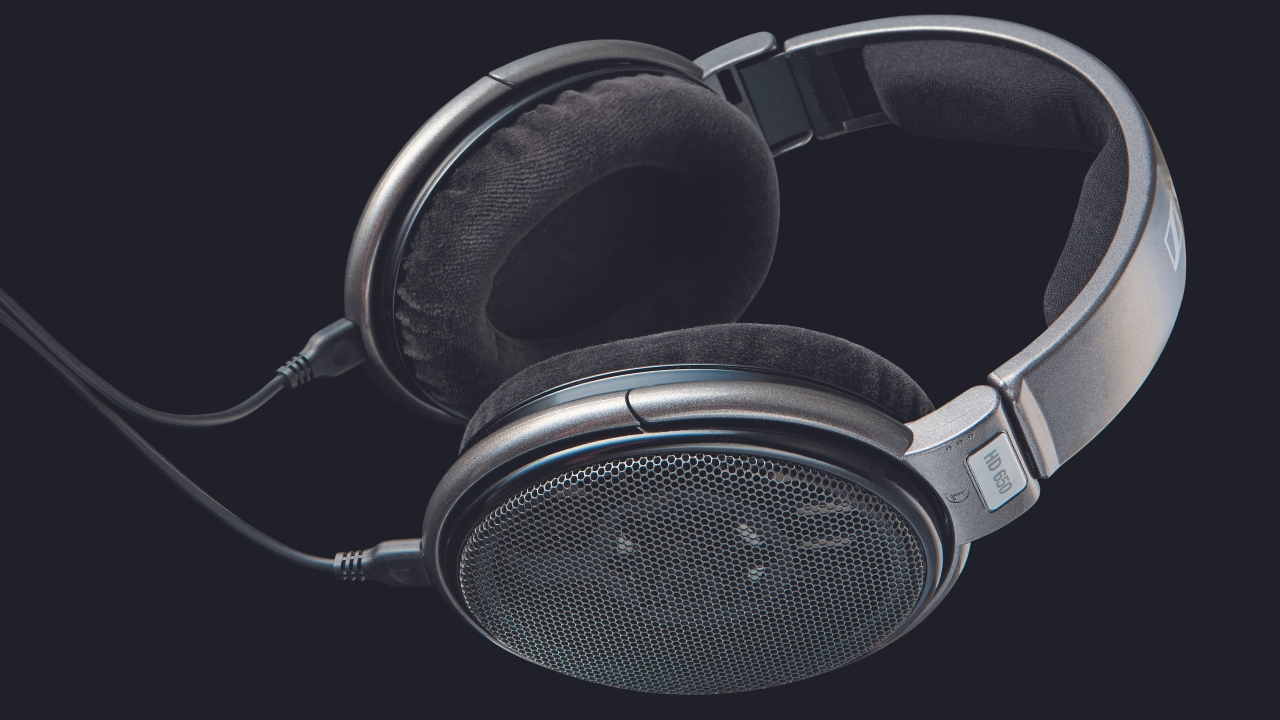
6. Sennheiser HD 650
Our expert review:
Specifications
Reasons to buy
Reasons to avoid
✅ Buy if you want the best sound: These premium-level studio headphones will deliver super detailed sound, perfect for audiophiles.
❌ Avoid if you need them quiet: These are open-back headphones which means that some of the sound will escape, making them not so great for people who need the utmost quiet when playing.
Aimed at higher-end users, this set from Sennheiser is as expressive and dynamic as it gets. It includes high power neodymium magnet systems for minimum harmonic and intermodulation distortion, and lightweight aluminium voice coils that offer a quick and transient response, delivering truly pristine tones to connoisseurs and purists alike.
With a frequency range of 10Hz to 41kHz, it covers the guitar spectrum and beyond, ensuring you get the fullest and widest sonic picture possible for the music you listen to as well as the music you play.
Being an open back design, it doesn’t contain sound as well as other headphones, though will manage well enough to avoid any complaints from neighbors. As well as a gold plated 1/4" jack plug and a low-noise detachable cable made from highly conductive OFC copper, there’s a specially developed damping element made out of fine acoustic metal mesh. Seriously, it’s as hi-fi as headphones can get and better still.
Also consider
Boss Waza-Air
Closed back
Packing five unique amp types from the Katana amp series, including voicings for bass guitar and acoustics, plus 50 customizable effects through Boss’ Tone Studio smartphone app, it’s hard to see where you can go wrong with the Waza-Air system.
Read more: Boss Waza-Air review
Beyerdynamic DT 770 Pro
Closed-back | 5Hz - 35kHz
These closed over-ear headphones from German manufacturers Beyerdynamic are very high-end, with a frequency response ranging from 5Hz to 35kHz for maximum resolution and precision. That extended range means all notes feel defined and articulate, even at the extreme bottom end of the register, with punch and clarity in areas other sets may lack in.
★★★★½
Neumann NDH 30
Open-back | 12Hz - 34kHz
Famed for producing the very best microphones around, Neumann has a storied history in studio monitoring too. With the NDH 30 headphones, you’d be forgiven for thinking you’d strapped two expensive monitors to your ears and were experiencing your guitar in a world renowned studio. They have an aura that shines through even from glancing at them, with the beautiful steel spring and aluminum body providing the exacting quality you’d expect from Neumann, setting them above their rivals.
★★★★½
Yamaha HPH-MT7
Closed-back | 15Hz - 20kHz
Though they’ve been out of production for quite some time, the Yamaha NS10 remains one of the most popular studio monitors of all-time, celebrated for their midrange honesty and unexaggerated low ends. This headphone set, launched by Yamaha back in 2015, was designed with those speakers in mind – offering a high-resolution sound with precise stereo imaging and faithful source signal reproduction from 15Hz to 25kHz.
★★★★☆
Vox VH-Q1
Closed-back | 10Hz - 25kHz
These active noise-cancelling headphones from Vox will certainly turn a few heads. The internal and external microphones make them an excellent tool for guitar practice and vocal training – picking up and isolating frequencies from your instrument, amp or voice for a clear and pristine tone. You can even feed in an audio source and blend it against what you play, which is perfect for rehearsing or jamming to backing tracks.
★★★★☆
How to choose
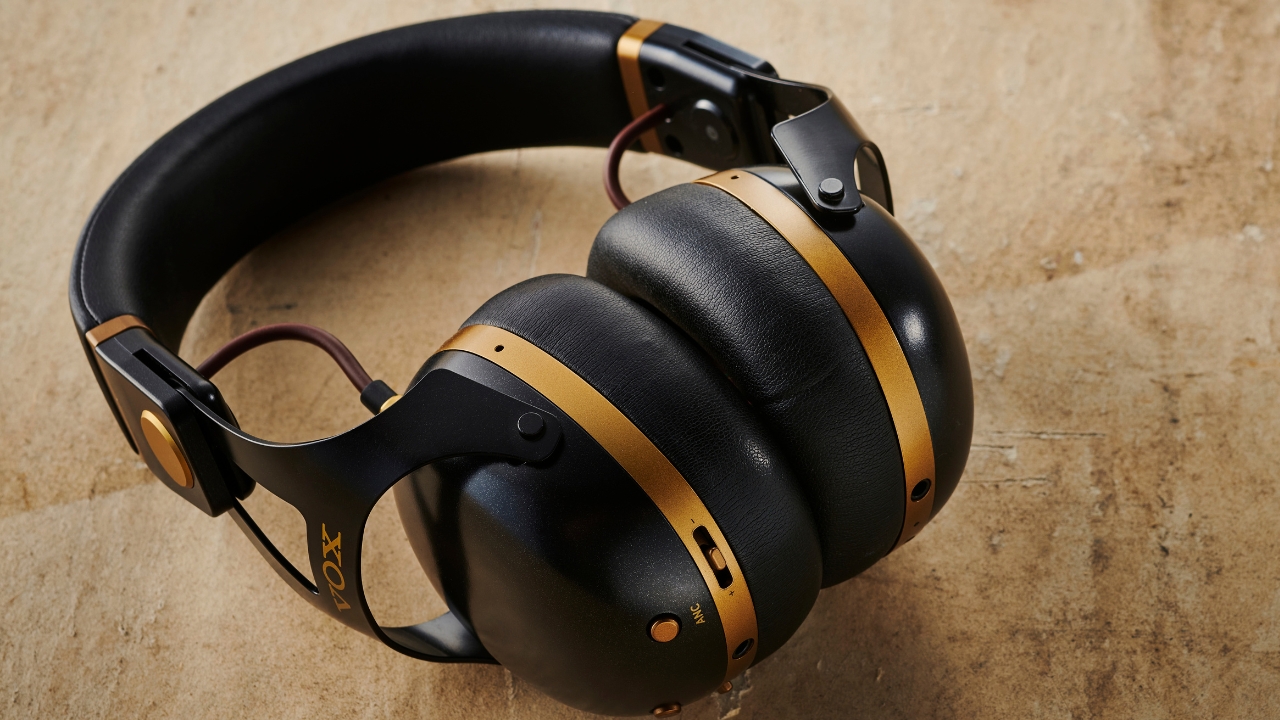
Before you start exploring your headphone options, figure out what your requirements actually are: are you looking for something transparent and simple to deliver authentic guitar amp tones, raw and uncomplicated? Or are you in the market for the kind of guitar wireless system that will allow you to roam free like James Hetfield stalking the stage of the nearest stadium? Perhaps, like many guitarists nowadays, you are a writer-producer, who wants headphones that can deliver from practice sessions, to mixing and mastering your very own records.
1. Think about your amp
You can trust Guitar World
The best guitar amp headphones for you may well depend on the kind of guitar amp you own. Purists may prefer headphones with a short cable and flat EQ, to ensure they don’t lose anything from the experience of playing their favorite tube amp – though classic tube amps often don’t have headphone outputs, which is where an option like the Waza Air headphones comes in.
2. Frequency response
Would you spend all that money on an amp and then have it colored in some way by the headphones you use? Or sacrifice some immediacy with a wireless set? Probably not. This is why a lot of the best headphones for guitar amps we’ve chosen here are geared more towards producers, rather than specifically hi-fi headphones or those designed primarily for streaming use, both of which tend to color your sound by adding loads of unnecessary low-end and flattering the midrange.
3. Ability to travel
Like many amplifiers, some headphones aren’t super travel-friendly and may not last long if thrown in the bottom of a backpack too often, so if you’re looking for something that will reliably last on the road, bear in mind that some headphones, such as the Sennheiser HD25s, have a reputation for being comfortable roughing it alongside gigging musicians. As with any addition to your musical inventory, it’s about investing in something that will stand the test of time, so choose wisely.
FAQs
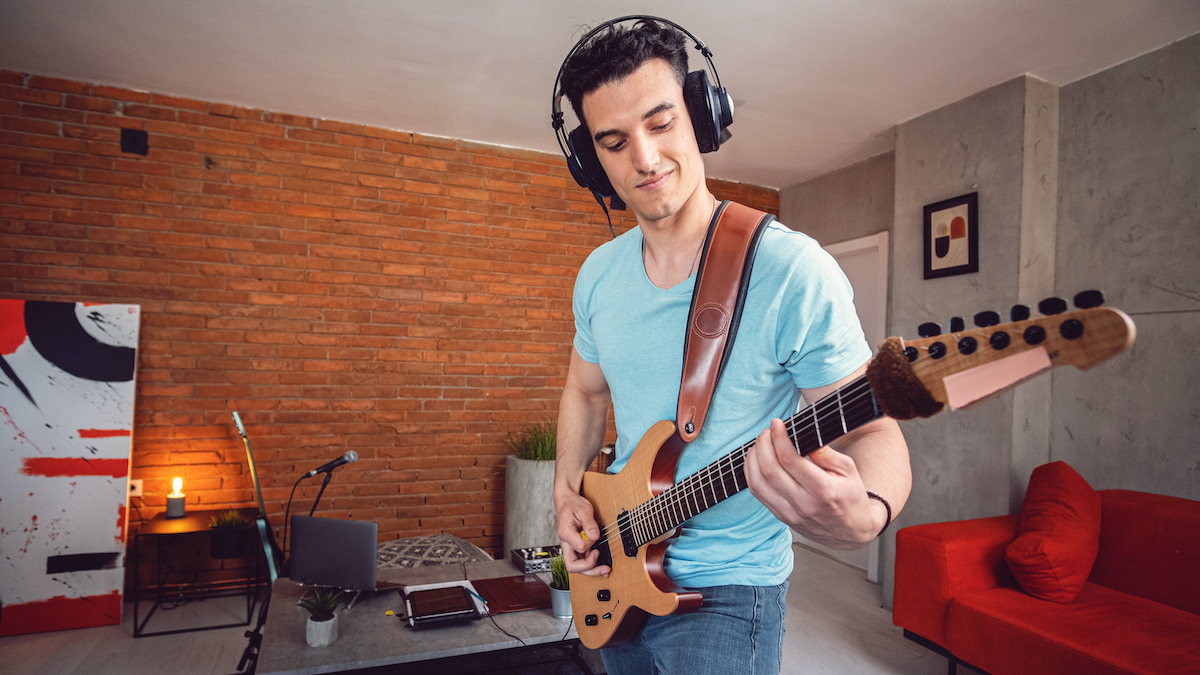
Can you plug headphones into a guitar amp?
Yes you can. If you own a modeling amp or a solid-state amp, then chances are it comes with a dedicated headphone output you can plug into, which will override the main speaker.
Although there are some tube amps with headphone outputs, the majority won't feature this due to the way they work. If you have a tube amp and your desperate to play with headphones, then have a look at a tube amp attenuator with a headphone output.
Can I mute my amp's speaker while using headphones?
If an amplifier has a headphone output, chances are it will automatically mute the speaker output when you plug it in. There are some amps that don't do that however, and if your amp doesn't have a headphone output at all, you'll need to look at a load box or speaker attenuator to convert it for silent practice.
What impedance works best for guitar amp headphones?
Impedance is the amount of ohms required to drive something, which you may have encountered if you've used a separate head and cab before. It's a similar idea with headphones, although you don't need to match anything here. The higher the headphone impedance, the more it'll need to drive it, so in general you should stick with a lower impedance around 30-80 ohms.
Should I use closed-back or open-back headphones?
It all depends on what you want from your headphones. Closed back design offer better isolation from any outside noises, but don't tend to sound as natural as open back designs. Open backs sound more natural to me, but they don't isolate as well, and you will get sound bleeding out from the ear cups, which could annoy others in the vicinity.
Can using headphones damage my hearing?
Yes it can. You've essentially got two speakers right next to your ear drum when using headphones, which is great for sound fidelity, but at higher levels it can cause damage. Turn up slowly from a low volume when you first put them on, and try not to spend long amounts of time playing at high volume.
How do I connect bluetooth headphones to guitar amp?
I wouldn't recommend doing this due to latency issues, but if you want to try you'll need a Bluetooth transmitter if you want to use wireless headphones with a guitar amp. Many Bluetooth headphones come with a dedicated receiver, but not all of them so you'll need to check the specs of your chosen cans to see if they have this feature.
Once you've plugged the receiver into the headphone out of your guitar amp you simply follow the standard procedure for pairing them. Once they're connected you should be able to enjoy wireless headphone freedom with your guitar playing. One thing to note is that depending on the headphone, you may get varying levels of latency, so there will be a delay between you playing a note and the sound coming out of the headphone.
Can you plug headphones into a guitar?
You can plug headphones into a guitar, but nothing will happen when you do. Your guitar needs some form of amplification to generate a sound, which headphones aren't able to provide on their own.
If you want to just use your guitar and a pair of headphones, then you can have a look at a guitar headphone amp, or one of the all-in-one solutions like the Spark Neo or Waza-Air in this guide. A headphone amp is essentially a tiny guitar amplifier you can fit in your pocket, giving guitar players a portable option to play their instruments.
Key terms
- Cab Sim: A software that simulates a guitar cabinet and speaker.
- Closed-back: A sealed headphone cup that prevents external noise and audio bleeding out.
- dB: The unit used to measure audio volume.
- Driver: The portion of a headphone that drives the sound, usually part of the ear cup.
- Dynamic range: The difference between the loudest and quietest sounds an audio device can reproduce.
- Frequency response: The range of sound a headphone can output, measured in Hertz and kilohertz.
- Headphone amp: A type of amplifier specifically for driving headphones with a high impedance, not the same as a guitar headphone amp.
- Impedance: The measure of electrical resistance in headphones, with higher impedance requiring more power in order to drive the headphones to sound their best.
- Latency: A short delay between playing a note on your guitar and hearing a sound, you'll get this with traditional Bluetooth headphones.
- Load box: A device that absorbs the sound of a guitar speaker, allowing you to record or play silently. Often used with tube amps.
- Open-back: A headphone with earcups that are open at the back, allowing for a more natural and open sound. Results in less isolation and your audio bleeding out of the headphone at the back.
- On-ear: Headphones that go physically onto your ear.
- Over-ear: Headphones that go over your ear and encircle it.
How we test
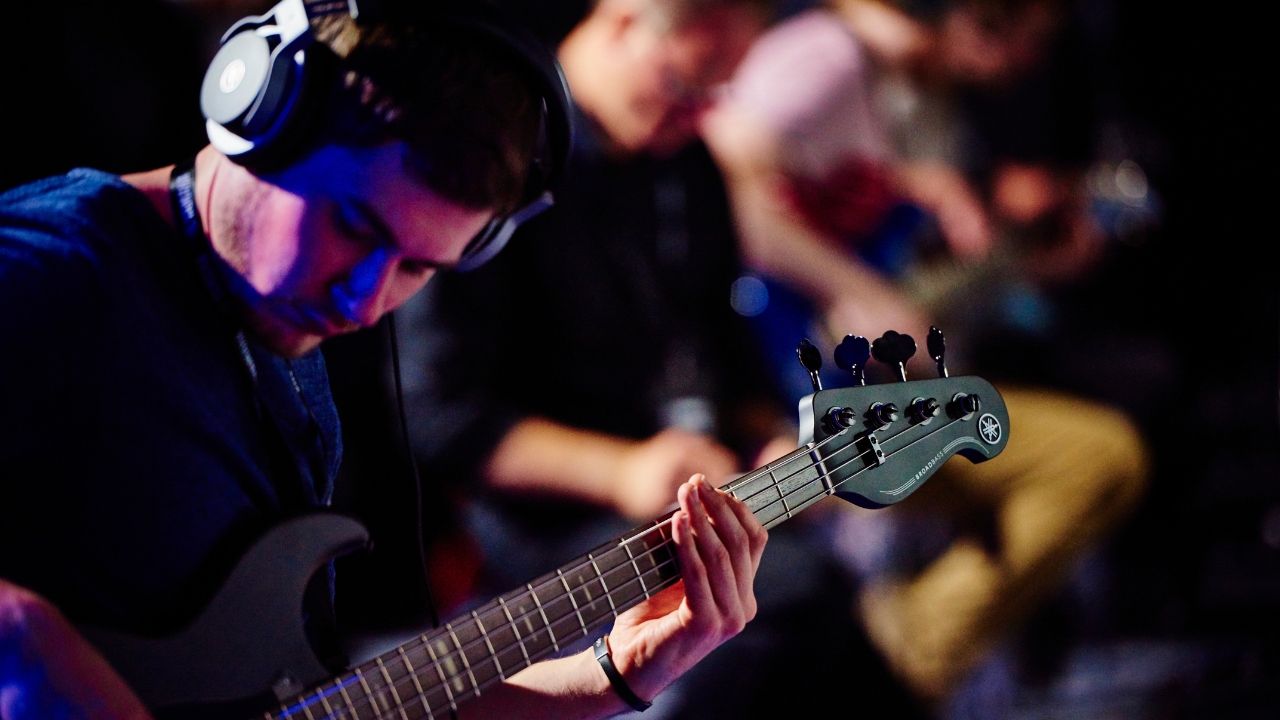
When testing headphones for use with a guitar amp we're looking for a certain set of narrow characteristics that aren't quite the headphones intended use. Most headphones on this list are predominantly designed for studio use, but as guitarists are likely to want the best sound it makes sense to use headphones that are good quality and have a flat EQ.
Our first test with all headphones is to check reference mixes to see how well they perform. These will be professionally mixed songs that our reviewers know inside and out that will be the basis for sound quality. From Lil Wayne's rumbling sub-bass right through to the complex compositions of Steely Dan, we'll ensure that each headphone is able to accurately translate across the full frequency spectrum.
Once the reference test is out of the way we'll then plug them into our chosen guitar amp to test their performance. We'll use all of the amp settings to see how they perform, from changing the EQ knobs to cranking the volume. We'll also use the headphones with our pedalboard to ensure they react realistically to the use of effects.
Next, we'll look at the durability and general features of the headphones in question. Do they come with a carry case? Can you fold them? Do they have a 1/8" to 1/4" adapter? All of these things are important touches that elevate a great set of headphones above merely good ones. We'll also be looking to see how tough they are, using them in a variety of scenarios to ensure the headphones in question will be able to put up with the rough and tumble of daily use.
Read more about our rating system, how we choose the gear we feature, and exactly how we test each product.
Related buying guides
- Best practice amps for mastering guitar and bass at home
- Best headphone amps for guitar: turn it up while keeping it down
- Protect your hearing with the best earplugs for musicians
- Best amp modelers: rack-mounted and floorboard options
- Explore the best budget guitar amps under $500
- Take a look at some of the best gifts for guitar players
All the latest guitar news, interviews, lessons, reviews, deals and more, direct to your inbox!
Amit has been writing for titles like Total Guitar, MusicRadar and Guitar World for over a decade and counts Richie Kotzen, Guthrie Govan and Jeff Beck among his primary influences as a guitar player. He's worked for magazines like Kerrang!, Metal Hammer, Classic Rock, Prog, Record Collector, Planet Rock, Rhythm and Bass Player, as well as newspapers like Metro and The Independent, interviewing everyone from Ozzy Osbourne and Lemmy to Slash and Jimmy Page, and once even traded solos with a member of Slayer on a track released internationally. As a session guitarist, he's played alongside members of Judas Priest and Uriah Heep in London ensemble Metalworks, as well as handled lead guitars for legends like Glen Matlock (Sex Pistols, The Faces) and Stu Hamm (Steve Vai, Joe Satriani, G3).
- Connor Godfrey
- Matt McCrackenJunior Deals Writer
